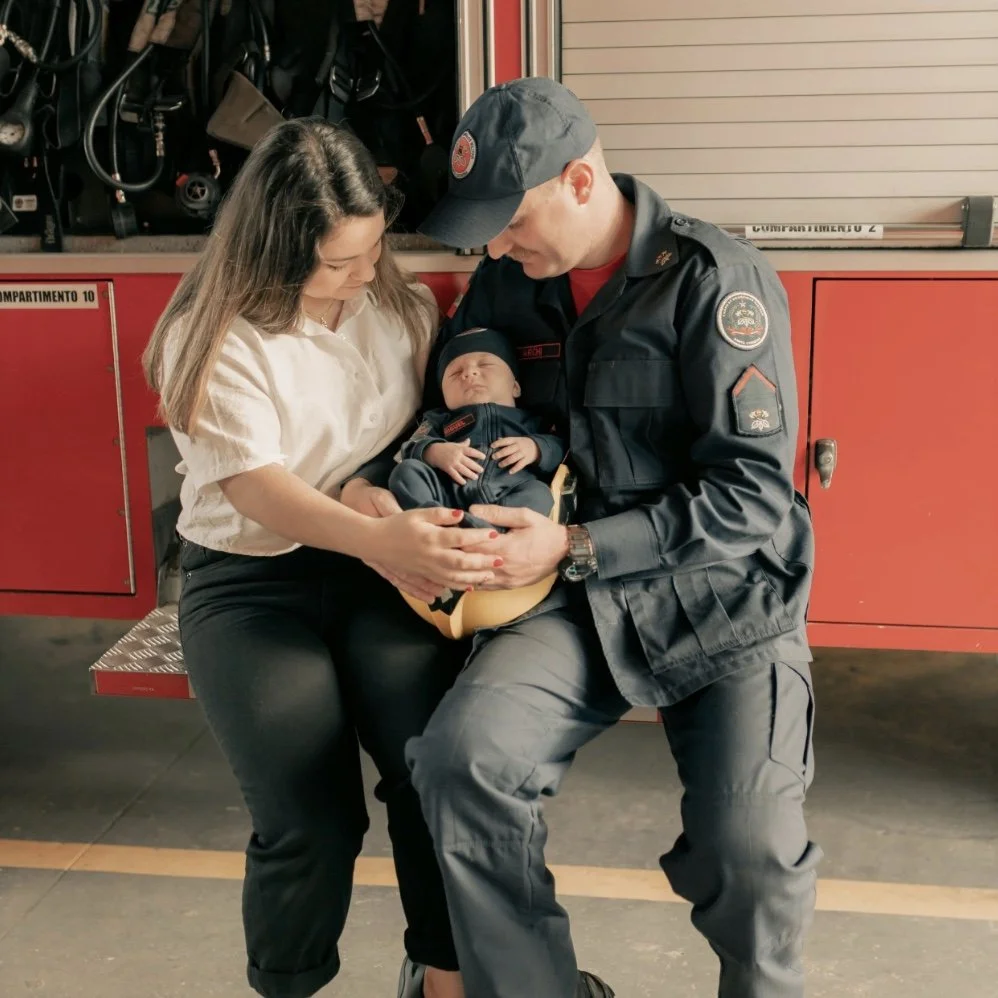Administrative Betrayal in the Fire Service and It’s Impact on Fire Spouses
As the spouse of a firefighter, you’ve likely weathered sleepless nights, missed holidays, and the constant hum of anxiety when your partner is on shift. But what happens when the biggest threat to your partner’s well-being isn’t a fire… it’s the people they thought had their back?
Welcome to the world of administrative betrayal. It’s a phrase that might sound clinical, but if you’ve seen your firefighter withdraw emotionally, carry invisible wounds, or question the career they once loved, you’ve likely felt its ripple effects in your own home.
What is Administrative Betrayal?
Administrative betrayal happens when a firefighter feels unsupported, dismissed, or even punished by leadership, especially after experiencing trauma, an injury, or job-related stress. This can be particularly devastating for those who have spent decades serving, giving their heart and soul to a department they thought would protect them in return.
Many firefighters step into their careers expecting camaraderie and loyalty. But when leadership turns a blind eye to their struggles, or worse, retaliates against them for speaking up, it creates a wound that cuts deeper than any call they’ve run.
The Lonely Climb: Captains and Chiefs in the Crosshairs
While betrayal hurts everyone in the fire service, officers like captains and chiefs face a unique burden. Their roles often pull them away from the station floor and into meetings, policy decisions, and administrative responsibilities. It’s a necessary evolution in their careers, but one that can feel increasingly isolating.
When betrayal comes from leadership, these officers find themselves caught in the middle, no longer fully part of the crew, yet not fully embraced by admin. The result? A painful sense of isolation, as if they no longer belong anywhere.
When the Brotherhood Breaks
One of the most heartbreaking aspects of administrative betrayal is the loss of connection. For years, your partner may have been surrounded by peers who felt like family. But after a traumatic event, injury, or simply asking for help, those bonds can unravel. Peers may distance themselves, unsure how to respond. Command staff may silence or sideline your partner rather than support them.
This rejection can feel deeply personal, leaving your firefighter questioning everything… Was it all worth it? Am I just disposable? That erosion of trust isn’t just professional, it’s emotional, spiritual, and sometimes even physical.
The Hidden Wounds at Home
As a spouse, you feel the fallout. You see the changes in your partner… the anger, the numbness, the sense of loss. You may try to ask what’s wrong, only to be met with silence or deflection. Or you may carry your own grief, mourning the life you once pictured together.
It’s not uncommon to feel helpless or afraid to say the wrong thing. You might wonder how to support someone who seems unreachable. The betrayal they’ve experienced at work often comes home with them, affecting communication, intimacy, and even your shared sense of stability.
You're Not Alone, And Neither is Your Partner
This experience is real, painful, and far more common than many people realize. Healing starts with acknowledgment, naming what’s happening and recognizing the impact it has on both the firefighter and their loved ones.
Therapy, especially from someone who understands the unique culture of the fire service, can be life-changing. Brittany Thomas-Vestal, LCSW, works specifically with first responders and their families, offering a space where both trauma and betrayal can be unpacked and processed.
Whether it’s through individual therapy for your partner or couples counseling to rebuild connection at home, support is available. You don’t have to carry this alone.

